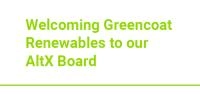April 04, 2012
By Humphrey Borkum, Chairman of JSE Limited
This year we celebrate the JSE’s 125th birthday. It has been quite an innings from its humble start during the Gold Rush of 1887 to the present world class bourse which turned over R3,3 trillion in the 249 trading days of 2011. We also commence the era of the fourth Chief Executive of the JSE, Nicky Newton-King. She was preceded by Russell Loubser, Roy Anderson and Tony Norton.
The year started off on the front foot with our strong 2011 financial results. These enabled us to increase our dividend to 250c per share (2010 - 210c) despite taking an impairment of R223 million on software development. Further momentum comes from co-operation between a number of BRICS exchanges to cross list benchmark equity index derivatives and the National Treasury’s policy change which enables foreign domiciled dual listings to be considered as domestic assets. Add to this our trading platform returning to Johannesburg and we have another positive year to look forward to in the continually evolving character of the JSE.
Before further discussion on these matters let me say a few words about the state of the markets in 2012. At our results presentation I said it is extremely difficult to predict the year ahead due to the volatile economic and political times in which we live. I do, however, believe that the second six months will be better than the first although the JSE All Share Index has already reached new highs in what one could call the third year of the bull market.
The printing presses of the Federal Reserve Bank and the European Union are running at full steam pumping out dollars and euros to capitalise their banks and thus prevent the world going into recession and a number of European countries from defaulting on their loans.
All this money is looking for good returns. Interest rates in developed countries are extremely low to encourage banks to continue lending money and consumers to resume spending. Therefore equities would appear to be a good option for investment in the foreseeable future. Moreover, there are companies sitting on piles of cash that they have saved by behaving frugally since the economic downturn in 2008.
It is ironic that numerous multi-national companies have far stronger balance sheets than delinquent sovereign countries who have been spending more than they earn. Some scenario planners are even predicting that, in these near bankcrupt countries, companies will need to become more like states in providing social services and states will need to become more like companies – entrepreneurial, flexible and less hierarchical.
Robust revenue performance and tight operating cost control in 2011 resulted in the JSE posting headline earnings per share of 562,4c – 29% higher than 2010’s 436,1c per share. Operating revenue grew by 9% to R1,4 billion (2010 R1,3 billion). However earnings per share were 400,8c, 10% lower than 2010’s 445,5c per share, primarily as a result of impairments made in respect of software under development.
In my business life I have always been slightly sceptical on how smoothly the implementation of new IT projects will proceed. Somehow I’ve always related these to projects in the construction industry which invariably seem to come in later than scheduled, with unforeseen cost overruns and long snag lists. The Gautrain is a good example. This was certainly the case with our Systems Replacement Project aimed at replacing the JSE’s current back office (BDA) system. After extensive testing our software did not fully meet our requirements - hence the impairment and delay of implementation.
It must be borne in mind that speed is becoming increasingly important in the exchange industry as we have to cope with the rapid rise of high frequency computerised trading. This need for speed and increased operational stability were two of the reasons that led to the decision to relocate the JSE’s trading system from London to Johannesburg. The new platform we will be using is the Millennium Exchange which is a wholly owned subsidiary of the London Stock Exchange Group and is used by ten other stock exchanges worldwide. It’s a new generation, ultra fast trading platform which will be managed and operated by the JSE itself. Members will benefit from 400 times faster trading executions and it should help obviate problems with our international connectivity links which occasionally have led to the JSE going off-line.
We have also found that trading volumes increase significantly with each technological advance in the JSE’s trading platform. This was the pattern when we adopted the JSE SETS in 2002 and the present trading platform the JSE TradElect in 2007. We anticipate the Millennium Exchange being in place by July.
The recent relaxation by Treasury of foreign exchange regulations enables foreign domiciled dual listings to be considered as domestic assets. From now on investors will not have to use their foreign exchange allocation for these investments and it also creates a good opportunity for off shore companies with African and South African assets to list on the JSE and take advantage of our capital markets. If a company is already listed elsewhere a secondary listing can be fast tracked as the JSE recognises the regulations of exchanges that are members of the World Federation of Exchanges.
This augurs well for the JSE attracting further resource listings and at the recent Mining Indaba we held two showcases with the objective of providing guidance on how to invest in African mining companies and then gave audiences the opportunity to hear from and meet senior mining executives. A further benefit is that these dual listed companies are now eligible for inclusion in our domestic indices. These now include British American Tobacco (BAT) which has the largest market capitalisation on our exchange.
The annual meeting of the World Federation of Exchanges which the JSE hosted last October led to seven stock exchanges in the BRICS alliance signing a co-operation agreement. Initially the exchanges will cross-list benchmark equity index derivatives. This will enhance access for investors to these attractive regions while strengthening co-operation between the BRICS block.
These seven exchanges represent 9 481 listed companies, a combined listed market capitalisation of $9,02 trillion (R68,5 trillion) and an equity market trading value of $422 billion (R3207 billion) per month. Above average growth is predicted for the BRICS countries generated by the increasing wealth of their expanding middle classes. Trading starts on March 30 in the new product in most of the regions.
Early last year the JSE announced that it would pro-actively commence a process of reviewing the Annual Financial Statements of our listed companies for compliance with International Financial Reporting Standards (IFRS). We stated that it was our intention to review every set of accounts at least once within a five year cycle and that we would randomly cover issuers of all sizes from the Top 40 to those with a very small market capitalisation.
The process is in no way punitive. Integrity of financial information is a critical element of a well functioning market and our objective is to raise the quality of financial reporting and to assist our issuers when they prepare their next set of financial results.
A crucial part of our monitoring process is our partnership with senior academic members of the University of Johannesburg (UJ) and the South African Institute of Chartered Accountants (SAICA). A detailed report is prepared by UJ for each set of annual financial statements. JSE staff members then engage with the issuer and consider and debate the responses. On complex and technical matters or where there is disagreement between the JSE and an issuer on a specific matter the problem will be referred to the Financial Reporting Investigation Panel of SAICA for advice.
Further information on the 56 annual financial statements that were reviewed last year can be found on the JSE website: www.jse.co.za. I would like to think that this and other pro-active measures taken by the JSE have contributed to its status as the best regulated stock exchange in the world over the past two years.
This article first appeared in Business Report



